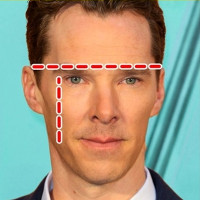Recently, scientists from the University of Reading (UK) have rejected the hypothesis that if there were no meteorites to fall to Earth, dinosaurs would continue to multiply. In fact, the number of dinosaurs was in decline long before the Chicxulub meteor disaster.
This discovery will put an end to the controversy surrounding dinosaurs for many years, and help us understand what happened at the last moment when dinosaurs were still alive.
One of the researchers, Chris Venditti, said: “One of the most controversial things about dinosaurs for decades is that they were thriving when the meteorite fell, or before that their numbers dwindled and even even extinct.”

The Earth has undergone many major geological changes, even if there were no meteorites, the dinosaurs would still be extinct.
To clarify the issue, Venditti and his colleagues analyzed fossil data to create an evolutionary branch of three main dinosaur species: ornithischians (bird-hipped dinosaurs), theropods (theropods like T-rex). ) and sauropods (lizard-hipped dinosaurs, represented by long-necked dinosaurs). They say the number of dinosaurs began to decline sharply around 24 million years before the meteor disaster. At its peak about 90 million years ago, the number of dinosaur species disappearing was much higher than that of newly born species. This was the beginning of a protracted extinction, and a meteorite disaster was just one of the triggers. So if the meteor disaster didn’t happen, the dinosaurs would still be extinct.
Scientists also offer an explanation for why dinosaurs disappeared on their own. That’s because the Earth has undergone many major geological changes. The two supercontinents of the Earth have been separated, the sea level fluctuates abnormally. In addition, geologist Gerta Keller believes that active supervolcanoes are also the reason why many terrestrial and marine dinosaurs became extinct. The habitats of giant dinosaurs shrank, making it difficult for them to keep up with the pace of evolution and easily wiped out by natural disasters.
Extinction is a lengthy process, often taking more than 1 million years for 75% of all species on Earth to be wiped out. And many disasters happen to be able to destroy such a large number of species on Earth. Therefore , the cause of the extinction of the dinosaurs is our Earth. Geological fluctuations, tectonic changes have gradually killed the dinosaurs for a long time. And disasters only accelerate the extinction process.

